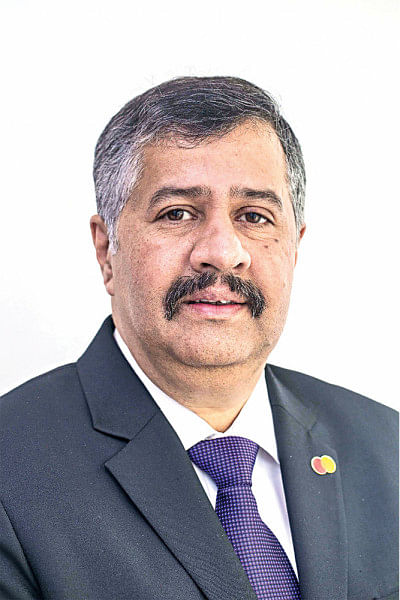Introduce incentives for digital and card payments: MasterCard’s Bangladesh chief

The government should think of providing incentives for using digital payments to reduce the use of cash in order to become a less-cash society, said an industry executive.
"We think it is the right time to incentivise digital payments, especially payments through cards," said Syed Mohammad Kamal, country manager of MasterCard Bangladesh.
"The timing is right now to start the incentive on digital payments, when people are getting used to it due to the pandemic."
The government is already giving incentives to various sectors such as garments, ICT and leather.
The government may announce a 5 per cent incentive on digital payments, especially through cards, to take the segment to a new height, Kamal said.
Of the incentives, users would get 3 per cent and merchants the rest 2 per cent to accept the payment digitally.
"This would encourage the users to pay digitally and the shop-owners to receive payments digitally instead of cash."
Kamal gave the example of India.
He said the neighbouring country introduced incentives for digital payments when it went for demonetisation in 2016. The incentive has still been continuing.
In December 2016, New Delhi announced 11 measures to encourage digital payments, a month after it demonetised high-value currency notes.
"As people are availing digital services and making payment digitally in Bangladesh, the electronic payment would receive a massive boost if the government seizes the opportunity by providing an incentive," Kamal said.
The digital financial service community along with Mastercard is in talks with the finance ministry and the central bank about it, he said.
According to Kamal, the coronavirus pandemic has worked as a trigger for digital transformation, especially for digital payments.
"Today, we are seeing things that we had hoped would happen five years later. People started adopting various digital services in the last six months."
The domestic use of cards has increased for online shopping and services. Sectors like online grocery, food delivery and lifestyle shopping have grown by leaps and bounds. Adding money to the mobile financial service accounts has grown.
He said the lesson from the pandemic is that people have become more digital-savvy and are using more contactless payments. People now feel comfort in using cards.
The World Health Organisation recommended using contactless payment in early March.
Still, Bangladesh is far away from becoming a cashless economy. "But it would be a great achievement if all of us try to make the country a less-cash society. The more use of digital transactions would mean lesser use of cash and having more traceability of transactions."
Kamal said Mastercard is working to connect and power an inclusive, digital economy that benefits everyone, everywhere by making transactions safe, simple, smart and accessible.
It pioneered BanglaQr, the national interoperable quick response (QR) in Bangladesh, and also launched contactless cards with many banks. It pioneered "Add Money" with mobile financial services and ensured interoperability between cards and the MFS operators in Bangladesh.
Debit card users transacted a record Tk 18,123.6 crore in July as they opted for the digital money over cash to keep the coronavirus at bay. The transaction is the highest at least since December 2018, Bangladesh Bank data showed.
In the first month of the fiscal year, credit card-holders spent Tk 1,252.4 crore, which was the highest in six months and up 9.49 per cent year-on-year.
For the card business, April was the worst month though it recovered to some extent in May and made a moderate comeback in June.
"July was a good month. Eid was a factor as the religious festival was celebrated at the end of the month," said Kamal.
"The card industry came back strong."
Mastercard is a global technology company in the payments industry. It is the only global payments company having a country office in Bangladesh for the last seven years.

 For all latest news, follow The Daily Star's Google News channel.
For all latest news, follow The Daily Star's Google News channel. 



Comments